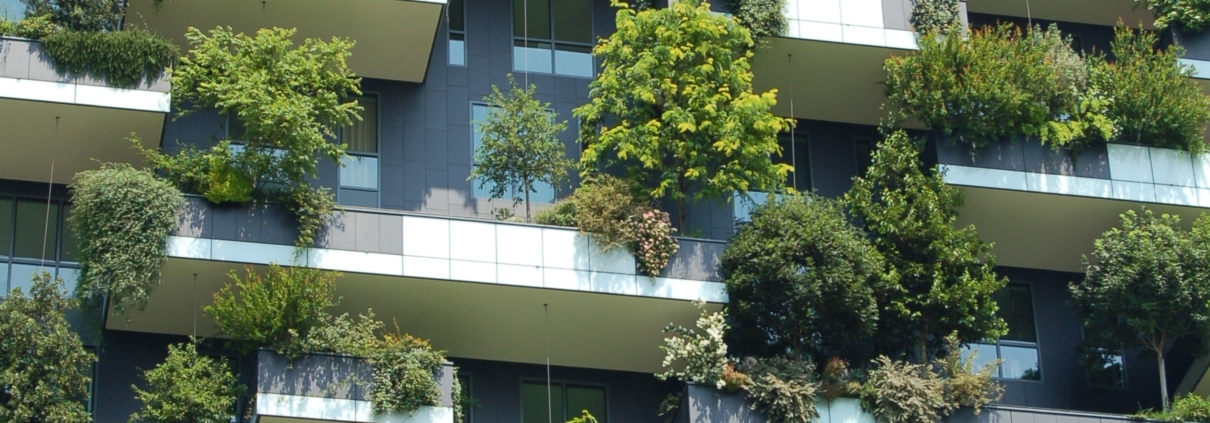10 things you can do to improve air quality in your city
Air pollution is an environmental issue that affects everyone. Here’s how you can do your part in clearing the air.
Use public transportation
Public buses, trams, subways, and trains are not only more affordable than driving your own car, they also help cut congestion and reduce air pollution. Oftentimes, there are discounts for children, students, seniors, and weekly/monthly/yearly passes. Rather than having to use a ticket machine or a counter, many cities now provide the option of getting e-tickets through their app. Check the website of your local public transport service for the details!
Walk and cycle more
Aside from the fact that walking and cycling produce zero emissions, these actions are also good for your health, so you can get a workout out of travelling! Don’t have a bike? Rent one! Services like Call a Bike (Germany) and BimBimBikes (worldwide) connect individuals with bike rental platforms so that you can procure one with ease.
Carpool or ride-share
Know someone who regularly drives to the same locations as you do? Travelling together in a single vehicle can reduce emissions, fuel costs, and traffic congestion. Don’t have anyone to carpool with? You could find a group on Facebook, or apps such as Waze Carpool (Brazil, Israel, Mexico, U.S.) and BlaBlaCar (Europe) allow you to commute with people on their daily routes as well as on road trips between cities!
Use an electric vehicle
If you really need to drive your own vehicle, consider investing in an electric car. There are options to be found in all major brands on the market today. Electric cars are more cost-effective in the long run due to lower maintenance fees, tax incentives, and low electricity costs when compared to traditional petrol or diesel cars. Other pros include zero emissions, quiet driving, and fast and convenient home charging. If going fully electric doesn’t sound appealing, try a hybrid car. These vehicles combine a diesel or petrol engine with an electric one motor, allowing you to use both options or switch between them while on the road. Hybrid vehicles consume less fuel and produce less emissions than a regular car.
Buy local products and produce
Shopping local means that the food had to travel less to where you are, thus decreasing transport emissions. Aside from the environmental benefits, you gain control over what you eat by knowing where the food comes from and how it was produced. You can also feel good about supporting local businesses! Products made close to home are usually highlighted on the packaging at your local supermarket. You are also able to find them by connecting with your community at your resident farmer’s market!
Join urban gardening initiatives
Urban gardening initiatives come in a variety of forms – backyard beekeeping, vertical and rooftop gardening, local farms – but what ties them together is the community. Benefits of joining one include positive social interaction, increased food security, efficient utilization of space, and access to fresher, healthier food. Carbon emissions are reduced from the plants you’re growing themselves and from the fact that the food didn’t have to travel to where you are!
Adopt green roofs for your house or your factory
A green roof is a vegetative layer grown on rooftops. They purify the air, serve as a habitat for local animals, reduce ambient noise from outside, slow stormwater runoff, provide insulation in the winter and protect the house from heat in the summer. While all green roofs function similarly, the actual installation will depend on the region, climate, building, type, and design.
Those with a lot more space to offer could alternatively install solar panels on their roofs. These will not only power your buildings with clean, renewable energy, but you could even sell the excess power produced back into the grid!
Switch to a renewable energy plan
Changing energy suppliers for your house means that the power you use in your daily life will be changed from coal, oil, and natural gas to that of sun, wind, and water. Not only will you reduce your carbon footprint by doing so, but renewable energy is usually cheaper! Save the environment and your wallet by looking for clean energy companies near you today!
Write to your city government to ask about air quality data and clean air actions
Air quality data is usually handled by a department of your city’s, state’s or country’s environmental agency. You can find our about the local air quality levels of your neighborhood by going to your regional or federal government website. Ideally, you will get information on how the measurements are gathered, current policies on curbing air pollution, trends in air quality, and much more. However, air quality data is traditionally gathered only at a few limited locations. This means that the location of the next monitoring station with available data is most likely far away from the places that matter most to you.
By writing to your local environmental agency, you may be able to receive modelled data applicable directly to the locations of your interest – for instance, where you live, where you work or where your children go to school. If they are not able to provide this information, you can also write to the politicians representing your neighborhood or in your city council. Every inquiry is important and will register as rising citizen interest in the topic of air quality. If more citizens show an active interest in data about air quality and clean air actions, city officials are more likely to take action by increasing the number of measurement locations and by proposing legislation to curb emissions.
There are also various initiatives targeting air pollution that require the assistance of citizens. You can find these on portals like the Urban Innovative Actions (Europe), or you can write to your government office for clean air actions that you can take part in.
Become an air quality sensor host
By volunteering to install an air quality sensor on your own premises, you help provide comprehensive air quality information for governments and fellow citizens in making decisions on improving the air we breathe. There are no costs incurred for becoming a sensor host aside from the sensors’ very low power consumption. The gathered air quality data will be publicly available on our citizen portal. Join us in helping clear the air today!

 Chris Barbalis / unsplash.com
Chris Barbalis / unsplash.com UN Sustainable Development Goals
UN Sustainable Development Goals Max Fuchs / unsplash.com
Max Fuchs / unsplash.com